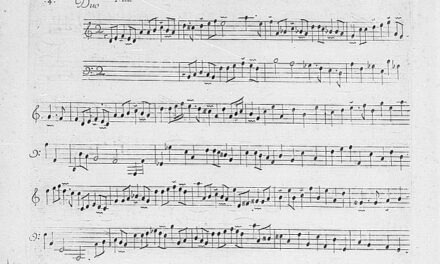On Sunday evening, a very small but hardy group of jazz afficionados braved the stormy weather and gathering fog to show up at White Horse Black Mountain for a program of recent Michael Jefry Stevens compositions played by the Mountain Chamber Jazz Ensemble. The eight instrumental musicians were Candace English, acoustic violin; Erisa Goto, electric violin; Franklin Keel, electric cello; Bill Fouty, bass; Frank Southecorvo, woodwinds; Justice Mann, trombone; Ben Bjorlie, drums and Stevens on piano. Four of the six selections also included vocalist Katie Ciffu.
The first work was an instrumental. Entitled “Crow,” it began with a seven-note non-legato motif, repeated many times with shifting timbre as various instruments took the lead role. I was not happy with the middle section – aleatoric passages that seemed to degenerate into chaos and lost focus. The work concluded with a recapitulation of the initial motif, altered again as it passed between solo instruments playing against the background of the other players.
The first vocal work was a setting of the Langston Hughes poem “Border Line.” Stevens’ arrangement begins with the first stanza vocal, “I used to wonder /About living and dying.” The material then was passed on to the instruments for four verses – featuring solo tenor sax, then electric violin, electric cello, and finally muted trombone – before the sixth verse returns to the vocalist for Hughes’s second stanza, “I used to wonder /About here and there.” Ciffu displayed an appropriate catch in her voice as she intoned the poet’s words, and all the players were heartfelt in this subdued and reflective work.
“Winter Lilacs” was written a long time ago as an instrumental. Stevens recently rewrote the piece with vocal content. Ciffu displayed a strong lower register. (She has a broad range that is pleasant throughout.) Keel’s cello solo was a high point. The composer made interesting use of pizzicato duets for the two electric string instruments.
“Sad” is another old instrumental, now enlivened with lyrics. Stevens (who announced that he had been sad when he had composed the original, but was no longer sad) seems to have a gift for appropriate use of the human voice. The downward trending passage that represents the title does not keep the work from being frequently quite joyful. Goto was impressive in her virtuosic solo on the electric violin.
Everyone got a chance to shine in “The Money Thing,” which expressed good humor about bad fortune. This was the most straightforward jazz-standard-like composition of the evening, and was a nice contrast to the complexity of some other works. The final selection was an instrumental, “The Fall,” with strong rhythm, an excellent trombone riff among other solos, and a final tutti that was an appropriate ride out to this evening of mostly progressive jazz.
Each time I hear the music of Stevens, I am reminded of Stan Kenton. Part of my introduction to progressive jazz was listening intently to the ten-inch LP “City of Glass” recorded in 1951 by the Stan Kenton Orchestra – 63 minutes of the music of Robert Graettinger. Graettinger’s compositional influences have been cited as everybody from Charles Ives to Alban Berg, with Richard Strauss, Igor Stravinsky and Arnold Schoenberg mentioned along the way. I believe that Olivier Messiaen was a strong influence on him. “City of Glass” remains controversial, and evokes strong feelings.
Like Kenton, Stevens composes jazz with a minimum of improvisation allowed. Like Kenton, his influences are from twentieth-century “classical” composers as well as past jazz greats. Some of his vocal music shows a chromaticism that reminds me of German lieder updated for the 21st century; others remind me of the influences cited for Graettinger. Stevens’ current work is sophisticated and definitely worth hearing.











